Hello there!
Have you ever felt like your mind is playing tricks on you when it comes to making economic decisions? Well, you’re not alone. In the world of economics, our minds can be like a maze, filled with twists and turns that lead us astray.
One person who has shed light on these mental pitfalls is the renowned psychologist and Nobel laureate, Daniel Kahneman. He has identified a set of cognitive biases that can cloud our judgment and affect our economic choices. These biases act like invisible barriers, distorting our perceptions and leading us down paths that may not be in our best interest.
From anchoring bias to overconfidence bias, Kahneman’s cognitive biases in economics offer a fascinating glimpse into the intricate workings of our minds.
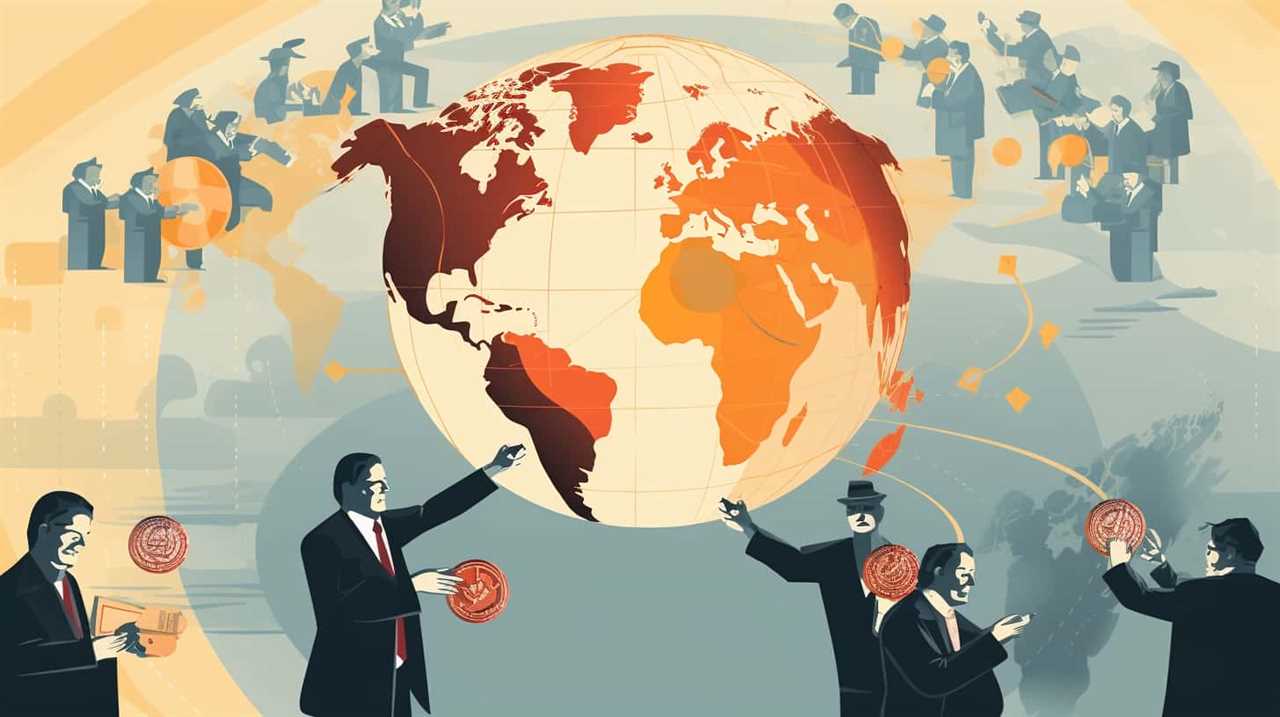
So, let’s dive in and explore these biases together, shall we?
Key Takeaways
- Kahneman’s cognitive biases in economics include anchoring bias, availability bias, confirmation bias, and overconfidence bias.
- These biases can lead to flawed reasoning, overestimating the likelihood of events, poor decisions, and being excessively confident in one’s abilities or judgments.
- Strategies to mitigate these biases include seeking alternative sources of information, evaluating underlying fundamentals, recognizing and challenging biases, seeking feedback, considering alternative perspectives, and developing self-awareness and humility.
- Loss aversion is another important concept in Kahneman’s work, which refers to the strong preference for avoiding losses over acquiring gains. This bias can influence risk perception and decision-making psychology, and strategies to mitigate it include framing messages in terms of potential losses.
Anchoring Bias
In our exploration of Kahneman’s cognitive biases in economics, let’s delve into the concept of anchoring bias, which refers to our tendency to rely heavily on the first piece of information we encounter when making judgments or decisions. This cognitive bias can have a significant impact on our evaluations of effectiveness and can hinder our ability to make objective and rational choices.
When evaluating the effectiveness of a product, for example, we may be influenced by the initial price we see. If the first price we encounter is high, we’re more likely to perceive subsequent prices as reasonable, even if they’re actually overpriced. This anchoring bias can lead us to make poor purchasing decisions, as we’re anchored to that initial piece of information.
Fortunately, there are strategies we can employ to mitigate the anchoring bias. One effective approach is to deliberately seek out alternative sources of information. By exposing ourselves to a wider range of perspectives and data points, we can challenge the initial anchor and make more informed judgments. Additionally, taking the time to reflect on our decision-making process and consciously considering alternative options can also help counteract the effects of this bias.
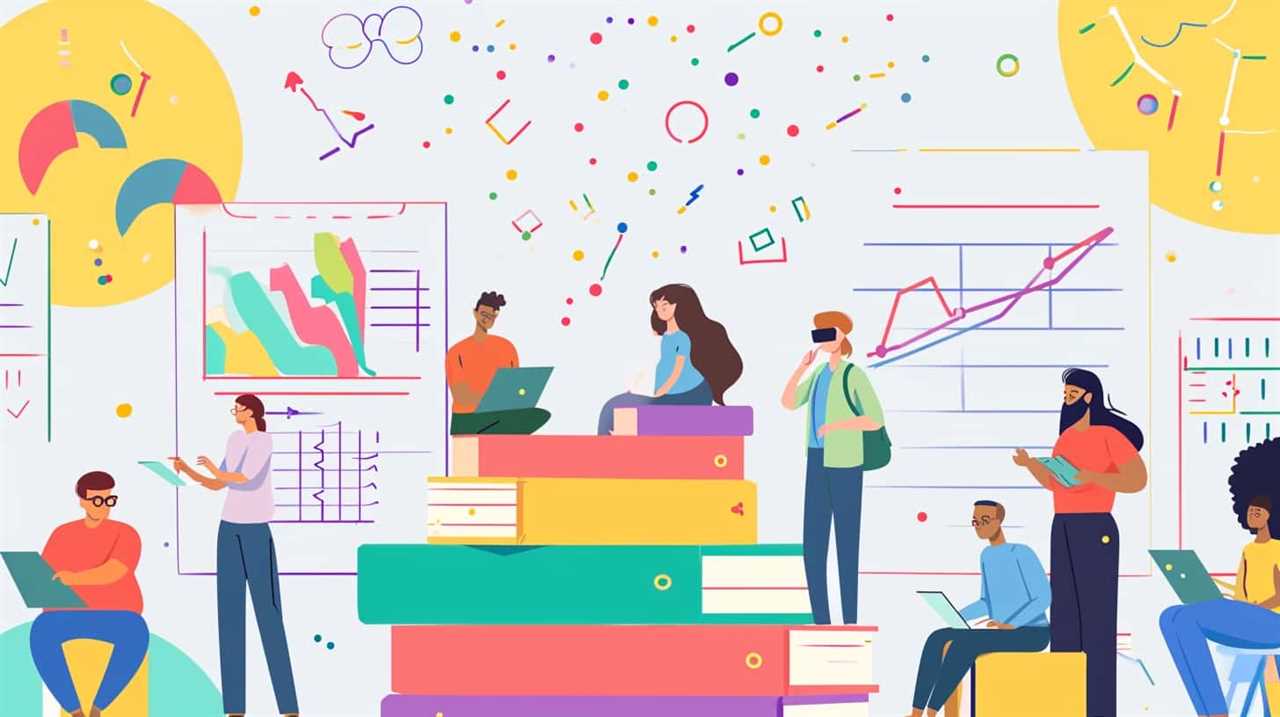
Availability Bias
Availability bias is a cognitive bias that affects our decision-making process by relying on readily available information from memory.
This bias can have a significant impact on market behavior as investors may be influenced by recent events or easily accessible information when making investment decisions.
Memory-Based Decision Making
When making decisions, we tend to rely heavily on the accessibility of information stored in our memory, leading to what is known as the availability bias. This cognitive bias in psychology can influence our decision-making processes by causing us to overestimate the likelihood of events or situations that are more easily recalled from our memory. As a result, we may give more weight to recent or vivid examples, while neglecting other relevant information that is less accessible in our memory.
To better understand the impact of the availability bias, let’s take a look at the following table:
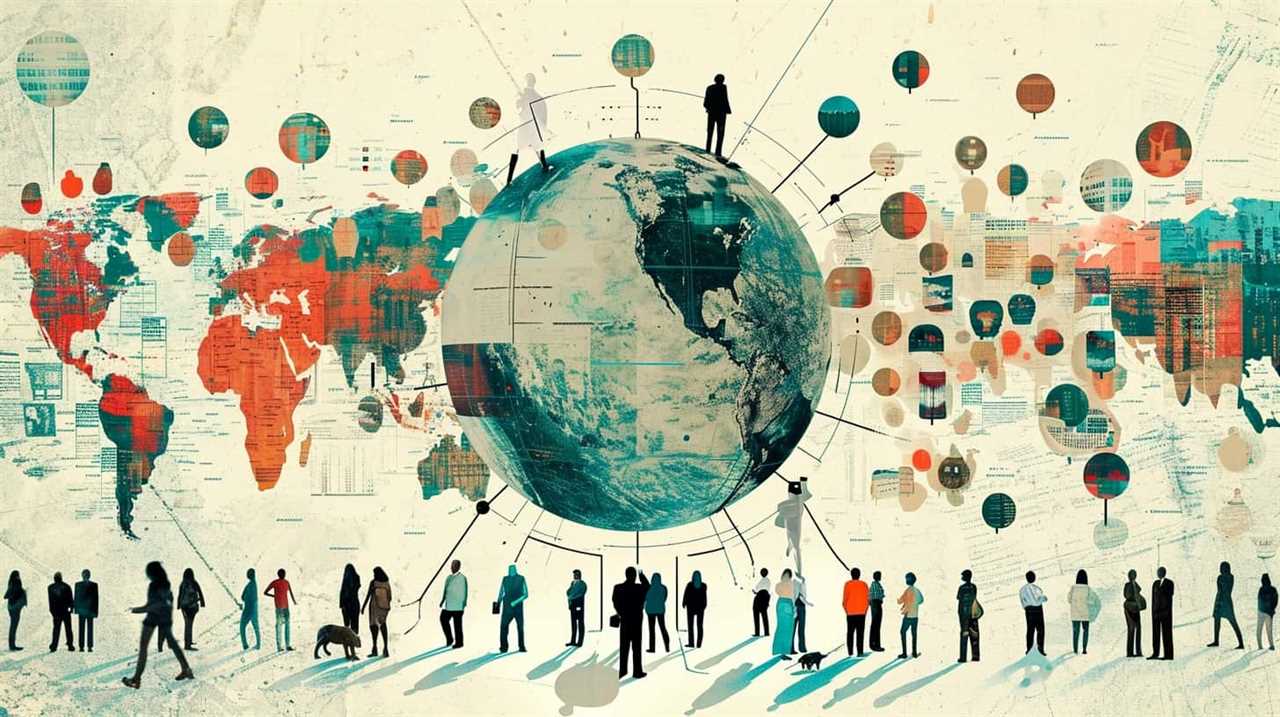
| Examples of Availability Bias | Explanation | Implications |
|---|---|---|
| Recalling recent news headlines | Recent events are more accessible in memory, leading to an overestimation of their frequency or importance. | This can influence our perception of risk or the likelihood of similar events occurring in the future. |
| Relying on personal experiences | We tend to give more weight to our own experiences, even if they may not be representative of the larger population. | This can lead to biased judgments and decisions, especially in situations where our experiences may be atypical. |
| Remembering vivid anecdotes | Vivid or emotionally charged stories are more likely to be remembered and can sway our judgments and decisions. | This can result in an overemphasis on anecdotal evidence and a failure to consider broader statistical data. |
Impact on Market Behavior
The impact of the availability bias on market behavior can lead us to make biased judgments and decisions, potentially affecting our perception of risk and the likelihood of certain events occurring in the future. When making investment decisions, our tendency to rely on readily available information can distort our assessment of the true probabilities and outcomes.
This bias is particularly evident in investor sentiment and the herd mentality that often dominates market behavior. When a certain investment or asset becomes popular, individuals may follow the crowd without fully evaluating the underlying fundamentals or considering alternative options. This can create market bubbles and lead to irrational exuberance or panic.
By understanding the influence of availability bias on market behavior, we can develop strategies to mitigate its impact and make more informed investment decisions. However, it’s important to recognize that availability bias is just one of many cognitive biases that affect our decision-making processes.
Transition: In addition to availability bias, another cognitive bias that plays a significant role in shaping our economic decisions is confirmation bias.

Confirmation Bias
Confirmation bias is a common cognitive bias that influences our decision-making by causing us to seek out and favor information that confirms our existing beliefs or hypotheses. It is a subconscious tendency that can lead to flawed reasoning and poor judgment. When we encounter information that contradicts our beliefs, it creates cognitive dissonance, which is the uncomfortable feeling of holding conflicting ideas. To reduce this discomfort, we engage in selective perception, where we cherry-pick information that supports our preconceived notions and ignore or dismiss information that challenges them.
To illustrate the impact of confirmation bias, let’s consider a hypothetical situation where an investor believes that a particular stock will perform well in the market. They would actively seek out positive news articles, analyst reports, and expert opinions that support their belief. Meanwhile, they would overlook or downplay any negative information that could potentially challenge their hypothesis. This confirmation bias can lead to a skewed perception of reality and ultimately influence their investment decisions.
Confirmation Bias:
| Cognitive Bias | Description |
|---|---|
| Confirmation Bias | The tendency to seek out information that confirms our existing beliefs or hypotheses |
| Cognitive Dissonance | The uncomfortable feeling caused by holding conflicting ideas |
| Selective Perception | The act of cherry-picking information that supports our preconceived notions and ignoring contrary evidence |
Understanding the impact of confirmation bias is crucial in realizing its potential negative consequences. It is important to recognize and challenge our biases in order to make more informed and rational decisions.

In the next section, we will explore the framing effect, another cognitive bias that can significantly influence our decision-making processes.
Framing Effect
Continuing our exploration of cognitive biases in economics, let’s delve into the framing effect, which significantly influences our decision-making processes. The framing effect refers to how the presentation or framing of information can alter our perception and choices, even when the content remains the same.
Here’s how the framing effect influences consumer behavior and its application in marketing strategies:
- Perception of Gain and Loss: The framing effect can influence how we perceive a decision as a gain or a loss. By framing a choice positively, emphasizing the potential gains, marketers can increase the attractiveness of a product or service.
- Risk Aversion and Risk Seeking: The framing effect can also impact our attitude towards risk. By framing a decision as a potential loss, individuals tend to become more risk-averse. On the other hand, framing a decision as a potential gain can make individuals more risk-seeking.
- Decision Context: The way information is presented can impact our decision-making based on the context. For example, highlighting the environmental benefits of a product can influence consumers to choose it over alternatives that aren’t framed as environmentally friendly.
- Brand Image and Perception: The framing effect can shape consumers’ perception of a brand. Marketers can strategically frame their brand messaging to create positive associations and influence consumer attitudes and behavior.
Understanding the framing effect and its influence on consumer behavior is crucial for marketers to design effective marketing strategies. It allows them to leverage the power of framing to shape consumer perceptions, attitudes, and ultimately, purchase decisions.

Transitioning into the subsequent section about ‘loss aversion’, it’s important to note that the framing effect is closely related to the concept of loss aversion, which we’ll explore next.
Loss Aversion
Exploring the cognitive bias of loss aversion, we find that individuals tend to strongly prefer avoiding losses over acquiring gains. This phenomenon, rooted in cognitive psychology and studied extensively in behavioral economics, has important implications for decision-making and economic behavior.
Loss aversion is a powerful force that shapes our choices and actions. It suggests that the pain of losing something is felt more intensely than the pleasure of gaining the same thing. This bias can lead to irrational behavior, as individuals may take excessive risks to avoid potential losses or hold onto losing investments longer than they should.
Understanding loss aversion is crucial for designing effective policies and interventions. By recognizing that people are more sensitive to potential losses, policymakers and businesses can tailor their strategies to mitigate the negative impact of potential losses and maximize the benefits of potential gains. For example, framing a message in terms of potential losses rather than gains can be more persuasive in influencing behavior.

Moreover, loss aversion has implications beyond economics. It affects various aspects of our lives, including personal relationships, health decisions, and even political choices. By integrating insights from cognitive psychology and behavioral economics, we can gain a deeper understanding of human behavior and create innovative solutions to address challenges in various domains.
Overconfidence Bias
One common cognitive bias in economics is our tendency to be overconfident. It’s human nature to believe that we’re better at something than we actually are, and this overconfidence bias can have significant implications in the field of economics.
Discussion ideas:
- Overestimation tendencies: When it comes to making economic decisions, we often overestimate our abilities and knowledge. This can lead to taking on more risk than we should or making faulty predictions about the future. By recognizing this tendency, we can take steps to be more cautious and avoid costly mistakes.
- Illusion of control: Another aspect of overconfidence bias is the illusion of control. We tend to believe that we’ve more control over outcomes than we actually do. This can lead to overtrading in financial markets or making decisions based on unfounded beliefs in our ability to influence the outcome. Understanding this bias can help us make more rational and informed decisions.
- Impact on decision-making: Overconfidence bias can distort our judgment and lead to suboptimal decision-making. It can prevent us from seeking advice or considering alternative perspectives, as we believe we already have all the answers. By acknowledging and addressing this bias, we can improve our decision-making processes and achieve better outcomes.
- Mitigating overconfidence bias: There are strategies we can employ to mitigate the effects of overconfidence bias. One approach is to seek feedback and actively challenge our assumptions. Engaging in collaborative decision-making and considering diverse viewpoints can also help counteract the overconfidence bias. By being aware of this bias and actively working to reduce its influence, we can make more informed and rational economic decisions.
Prospect Theory
Prospect Theory is a groundbreaking psychological framework that challenges traditional economic assumptions about decision-making under uncertainty. This theory emphasizes the importance of loss aversion and the asymmetry of gains and losses, suggesting that individuals are more sensitive to potential losses than gains.
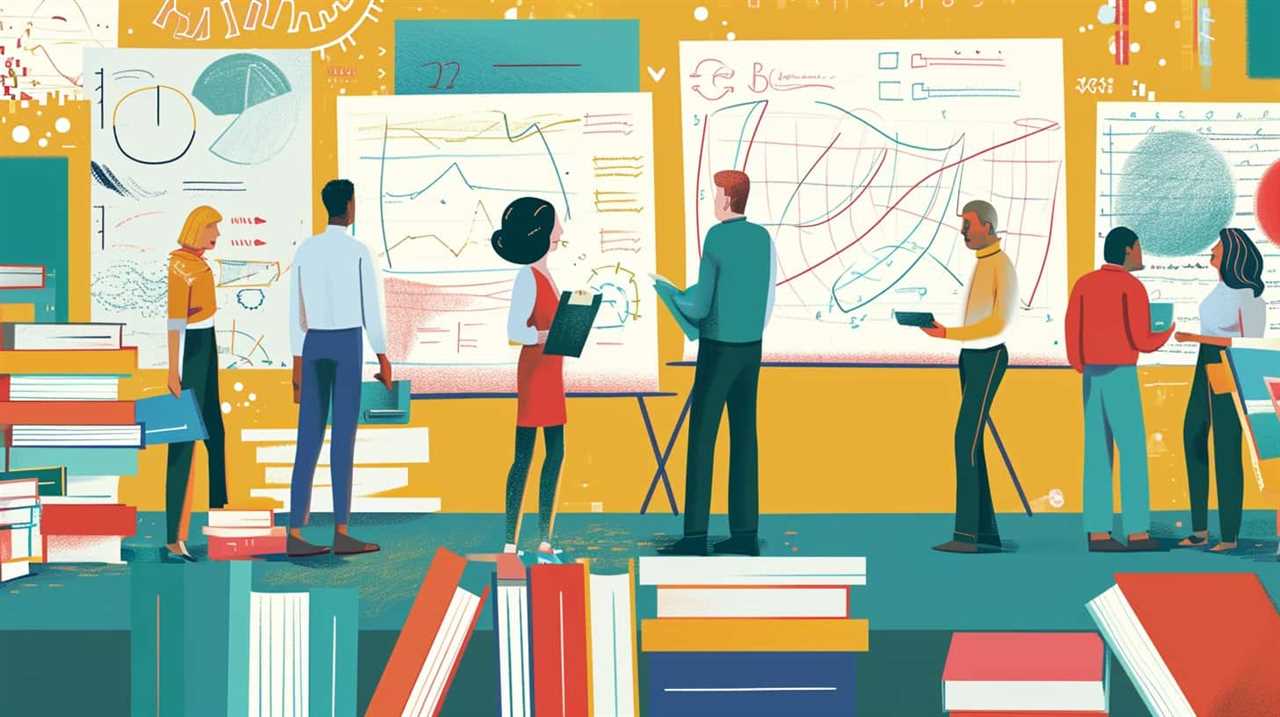
Moreover, Prospect Theory highlights the role of framing effects in choices, demonstrating how the way options are presented can significantly influence decision outcomes.
Decision-Making Under Uncertainty
We have found that decision-making under uncertainty, as described by Kahneman’s Prospect Theory, is influenced by a number of cognitive biases in economics. When it comes to risk assessment, our brains tend to deviate from rationality and fall prey to these biases.
Here are some key cognitive biases that affect decision-making under uncertainty:
- Loss aversion: We tend to weigh potential losses more heavily than potential gains, leading to risk-averse behavior.
- Framing effect: The way information is presented can significantly impact our decisions, even if the underlying facts remain the same.
- Availability heuristic: We rely on readily available information to make judgments about the likelihood of uncertain events, often leading to biases in risk assessment.
- Overconfidence bias: We tend to overestimate our own abilities and the accuracy of our judgments, leading to inflated confidence in uncertain situations.
Understanding and addressing these biases is crucial for making more informed and effective decisions in the face of uncertainty. By incorporating insights from psychology and economics, we can pave the way for innovative approaches to decision-making under uncertainty.

Loss Aversion and Gains
When considering decision-making under uncertainty, an important cognitive bias to be aware of is loss aversion and its impact on our perception of gains. Loss aversion refers to the tendency for individuals to feel the pain of losses more strongly than the pleasure of equivalent gains. This bias can significantly influence risk perception and decision-making psychology. According to prospect theory, developed by Daniel Kahneman and Amos Tversky, people are more inclined to take risks to avoid losses than to pursue gains. This asymmetry in risk-taking behavior can lead to suboptimal choices and missed opportunities. Understanding how loss aversion affects our perception of gains is crucial for developing innovative strategies to mitigate its negative impact on decision-making.
Now, let’s delve into another important cognitive bias in economics: framing effects in choices.
Framing Effects in Choices
Loss aversion, a cognitive bias that influences risk perception and decision-making psychology, sets the stage for understanding framing effects in choices within the context of prospect theory. Framing effects occur when the way a choice is presented, or framed, affects our decision-making. In the field of behavioral economics, this phenomenon has been extensively studied. Here are some key insights:
- Decision architecture: The way choices are structured can significantly impact our decisions. By manipulating the framing of options, decision architects can guide individuals towards certain choices.
- Psychological framing: How information is presented can alter our perception of risk and reward. For example, framing a decision as a potential loss rather than a gain can lead to more risk-averse behavior.
- Context matters: The same choice presented in different contexts can elicit different responses. Our decisions are influenced by the surrounding environment and the way information is framed.
- Cognitive biases: Framing effects are a result of cognitive biases, such as the anchoring effect and the endowment effect, which influence our judgment and decision-making processes.
Understanding the framing effects in choices provides valuable insights into how our decisions can be influenced and manipulated. By incorporating these findings into decision-making processes and understanding the role of decision architecture in framing, we can make more informed choices and design better systems that align with human psychology.

Frequently Asked Questions
How Do These Cognitive Biases Affect Decision-Making in Economics?
When it comes to decision-making in economics, cognitive biases can have a significant impact. They can cloud judgment, lead to irrational choices, and affect investment decisions. Minimizing these biases is crucial for sound economic decision-making.
What Are Some Real-World Examples of These Biases in Action?
In real life, we see cognitive biases play out in economics every day. They impact economic decision making by leading us to make irrational choices, like overvaluing our own investments.
Are These Biases Unique to Economics or Do They Apply to Other Fields as Well?
Cognitive biases in psychology have a profound impact on various fields, including marketing. These biases are not exclusive to economics but influence decision-making processes across disciplines, highlighting the interdisciplinary nature of understanding human behavior.
Can Individuals or Organizations Overcome These Cognitive Biases to Make More Rational Economic Decisions?
We can overcome cognitive biases and make more rational economic decisions by recognizing and challenging our inherent limitations, embracing interdisciplinary approaches, and utilizing innovative strategies to enhance decision-making processes.

What Are Some Strategies or Techniques That Can Be Used to Mitigate the Impact of These Biases in Economic Decision-Making?
Strategies and techniques can help mitigate biases in economic decision-making. By incorporating diverse perspectives, conducting thorough research, and using cognitive tools, we can enhance rationality and make more informed choices.
Conclusion
In conclusion, Kahneman’s cognitive biases in economics shed light on the irrationality that can often govern our decision-making.
One anecdote that highlights this is the story of a stock market investor who becomes anchored to a particular price, unable to see the true value of the stock.
This metaphor serves as a reminder that our biases can blind us to objective reality, leading to potentially disastrous consequences.
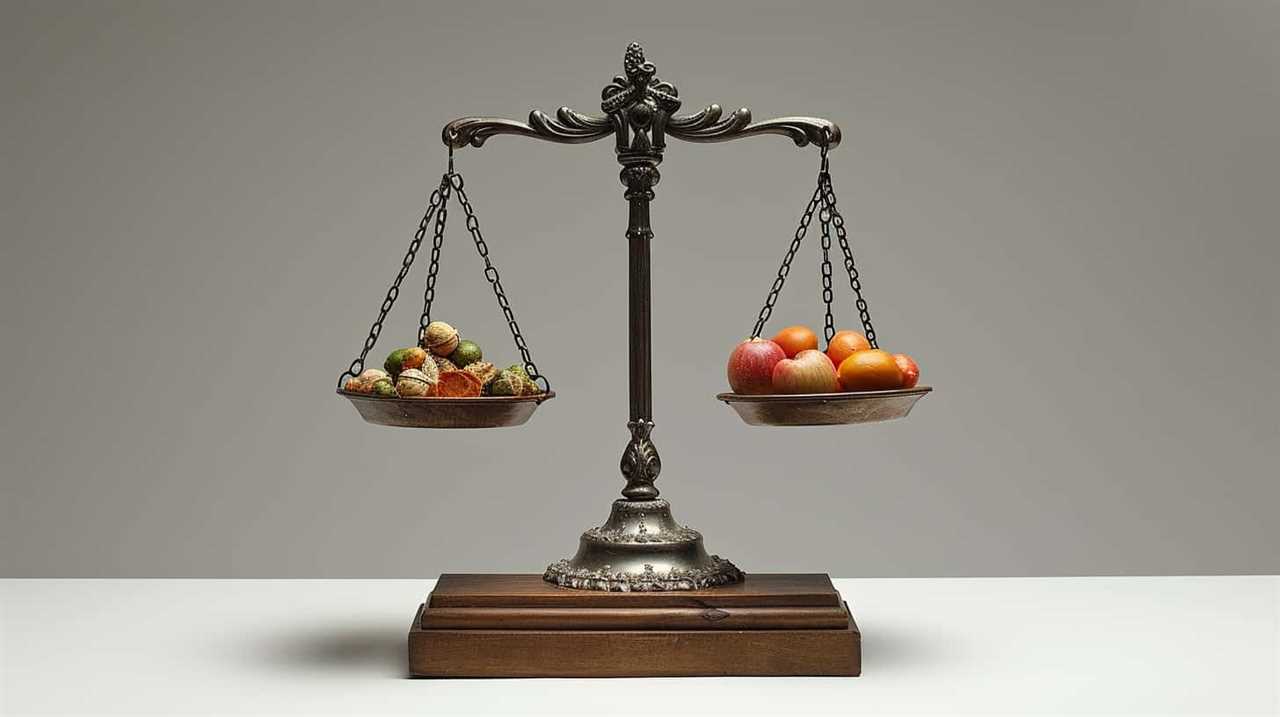
Understanding and addressing these biases is crucial for making more informed and rational economic decisions.
Lauren’s talent in writing is matched by her passion for storytelling. Her love for books and deep understanding of culture and entertainment add a distinct flavor to her work. As our media and press contact, Lauren skillfully bridges the gap between afterQuotes and the broader media landscape, bringing our message to a wider audience.










